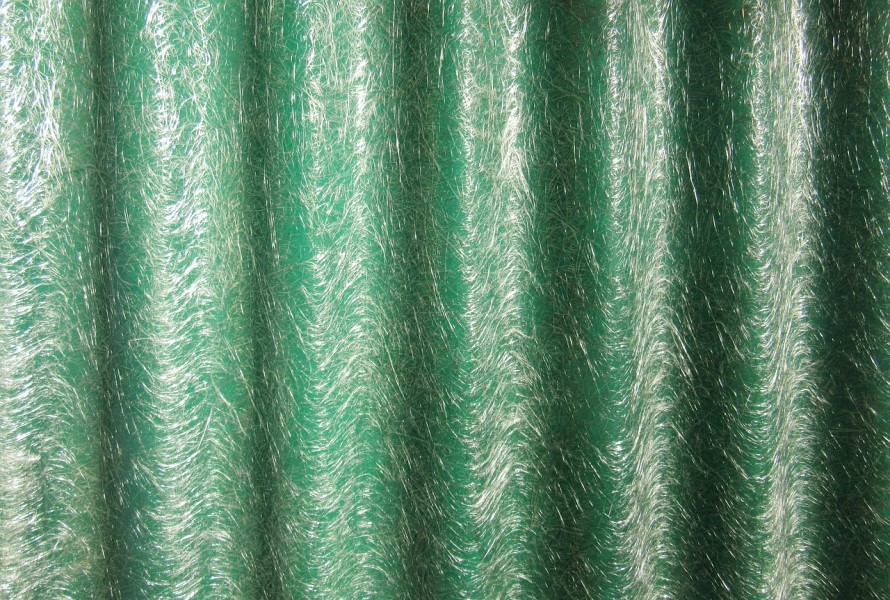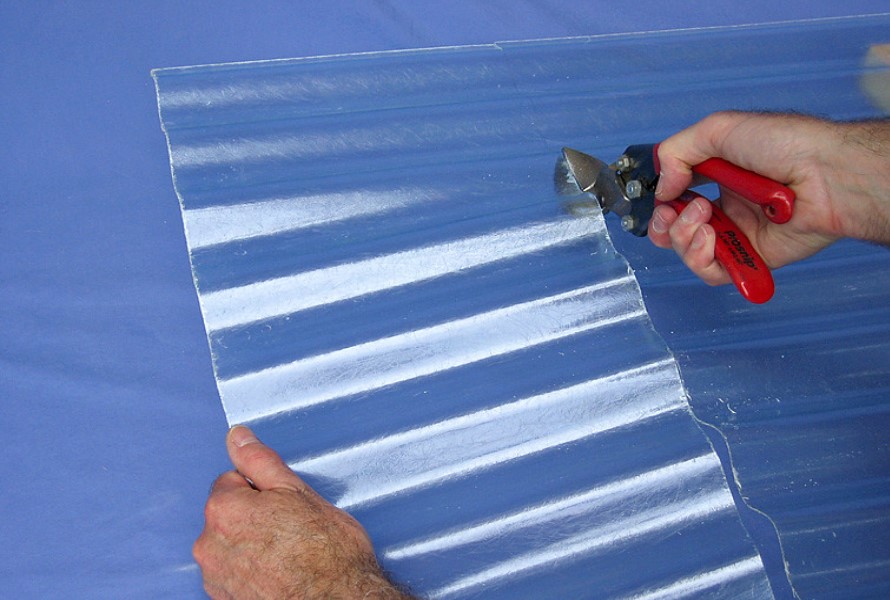Glass fiber-reinforced plastics, (or fiberglass) have remarkable mechanical qualities, including high strength, stiffness, and corrosion resistance. Thus, it’s an ideal material for many applications. Depending on the purposes of use, there are different types of glass fiber-reinforced polyamide to meet your requirements. Let’s dig into the details in the article below to find out more about this topic!
1. What are glass fiber-reinforced plastics?
Glass fiber-reinforced plastics (GRP), also known as fiberglass, is a thermosetting plastic matrix reinforced with fine glass fibers. The fibers are woven into a mat, which is impregnated with a polymer resin like polyester or epoxy. Pultrusion is used in the manufacturing of GRP, which produces a robust, light-weight, and corrosion-resistant material. Because of its high strength-to-weight ratio and ability to be molded into a variety of forms and sizes, it is a popular option in a number of industries, including the automotive, aerospace, marine, and construction sectors.
2. Why should you choose glass fiber-reinforced plastics?
Glass fiber-reinforced polymer is strong, thanks to the two components supplementing each other. Glass fibers are extremely strong in tension, while plastic resins are robust under compressive force. GRP creates a material that extremely well resists both compressive and tensile forces by mixing the two components.
GRP is a robust, lightweight material that is highly resistant to corrosion, chemicals, UV rays, temperature stability, and environmental factors. It is outdoor-friendly, waterproof, and may be made fire-resistant using non-flammable resins. Because GRP is durable and long-lasting, it is appropriate for a wide range of industries.

3. Glass fiber-reinforced plastic types
Glass fiber-reinforced plastics are categorized according to the glass types. Here is the explanation of each type in detail:
3.1. A-glass
Definition: It’s the Alkali glass made with soda lime silicate.
Application: It’s utilized when E-glass's electrical resistance is not required. The most common applications are windows and containers.
Mechanical properties
- Density, (g/cm3): 2.44
- Modulus, (GPa): 72
- Tensile Strength, (MPa): 3300
- Percent Elongation: 4.8
3.2. AR-glass
Definition: It’s the Alkali Resistant glass made with Zirconium silicate base.
Application: It’s used as a substrate for Portland cement.
Mechanical properties
- Density, (g/cm3): 2.7
- Modulus, (GPa): 72
- Tensile Strength, (MPa): 1700
- Percent Elongation: 2.3
3.3. C-glass
Definition: It’s the combination of corrosive resistant glass and calcium borosilicates.
Application: It’s used in environments that are corrosive to acid.
Mechanical properties
- Density, (g/cm3): 2.56
- Modulus, (GPa): 69
- Tensile Strength, (MPa): 3300
- Percent Elongation: 4.8
3.4. D-glass
Definition: It’s the combination of low dielectric constant glass and borosilicates.
Application: It’s a useful material for electrical applications.
Mechanical properties
- Density, (g/cm3): 2.11
- Modulus, (GPa): 55
- Tensile Strength, (MPa): 2500
- Percent Elongation: 4.5
3.5. E-glass
Definition: It's the mixture of Alkali free, highly electrically resistive glass and alumina-calcium borosilicates.
Application: Since it’s a strong and electrical-resistant material, it’s a well-known general-purpose fiber that usually appears in the fiber reinforced polymer composite industry.
Mechanical properties
- Density, (g/cm3): 2.54
- Modulus, (GPa): 72
- Tensile Strength, (MPa): 3400
- Percent Elongation: 4.7

3.6. ECR-glass
Definition: It’s the E-glass with higher acid corrosion resistance combined with calcium aluminosilicates.
Application: It’s suitable for the applications requiring strength, acid corrosion resistance and electrical conductivity.
Mechanical properties
- Density, (g/cm3): 2.72
- Modulus, (GPa): 80
- Tensile Strength, (MPa): 3400
- Percent Elongation: 4.3
3.7. R-glass
Definition: It’s the A reinforcement glass mixed with calcium aluminosilicates.
Application: You can utilize it when greater strength and resistance to acid corrosion are required.
Mechanical properties
- Density, (g/cm3): 2.52
- Modulus, (GPa): 86
- Tensile Strength, (MPa): 4400
- Percent Elongation: 5.1
3.8. S-glass
Definition: It’s the blend of high strength glass and magnesium aluminosilicates.
Application: It’s used in applications requiring high stiffness, high strength, resistance to corrosives, and severe temperature tolerance.
Mechanical properties
- Density, (g/cm3): 2.53
- Modulus, (GPa): 89
- Tensile Strength, (MPa): 4600
- Percent Elongation: 5.2
4. EuroPlas - Where you can find the best glass fiber compounds
As a leader in the masterbatch world, EuroPlas understands the popularity of glass fiber-reinforced plastics and has produced a variety of glass fiber compounds to help your business. Here is a list of our outstanding products:
PC-GF compound is a thermoplastic polymer with excellent impact, toughness, and heat resistance properties. It is used in various industries due to its high optical clarity and dimensional stability. The compound is made of PC resin mixed with glass fiber, enhancing its mechanical properties like tensile and flexural strength, impact resistance, and dimensional stability. This makes it ideal for high-durability applications like printers, cameras, rice cookers, vacuum cleaners, gears, and keyboards. EuroPlas offers high-quality PC-GF compounds tailored to meet customer needs, with different glass fiber ratios providing specific mechanical properties.
ABS-GF compound is a thermoplastic polymer made from ABS resin and glass fiber, offering improved mechanical properties like strength, stiffness, and dimensional stability. It is commonly used in applications like car fuel tank caps, printer cartridges, car interiors, and earphone components. The addition of glass fiber increases the heat deflection temperature of the material. EuroPlas offers ABS glass fiber compounds with varying levels of glass fiber content and other additives to meet different product requirements, making it a popular choice for various consumer and industrial applications.
PP glass fiber compound is a blend of PP resin, glass fiber, and other additives, providing increased flexural modulus and tensile strength in products like furniture, electric appliances, and automobiles. EuroPlas offers a variety of PP glass fiber compounds with different densities, including ECP PP 10GF, ECP PP 20GF, ECP PP 30GF, ECP PP 40GF, and ECP PP 50GF. Our professional team can assist customers in selecting the right PP compounds to enhance the properties of the end products.
PBT GF-FR compound is an engineering plastic with glass fiber reinforcements, color, and flame retardant additive. It is widely used in kitchen equipment, household appliances, electrical engineering, and car interiors due to its long-term heat aging stability, mechanical and financial benefits, and enhanced durability. EuroPlas offers various types of engineering plastic compounds with excellent thermal resistance and mechanical properties, including glass fiber ratios and fire resistance levels following UL94 standards.
If you want to know more about our products, contact us right now! We are always happy to hear from you.